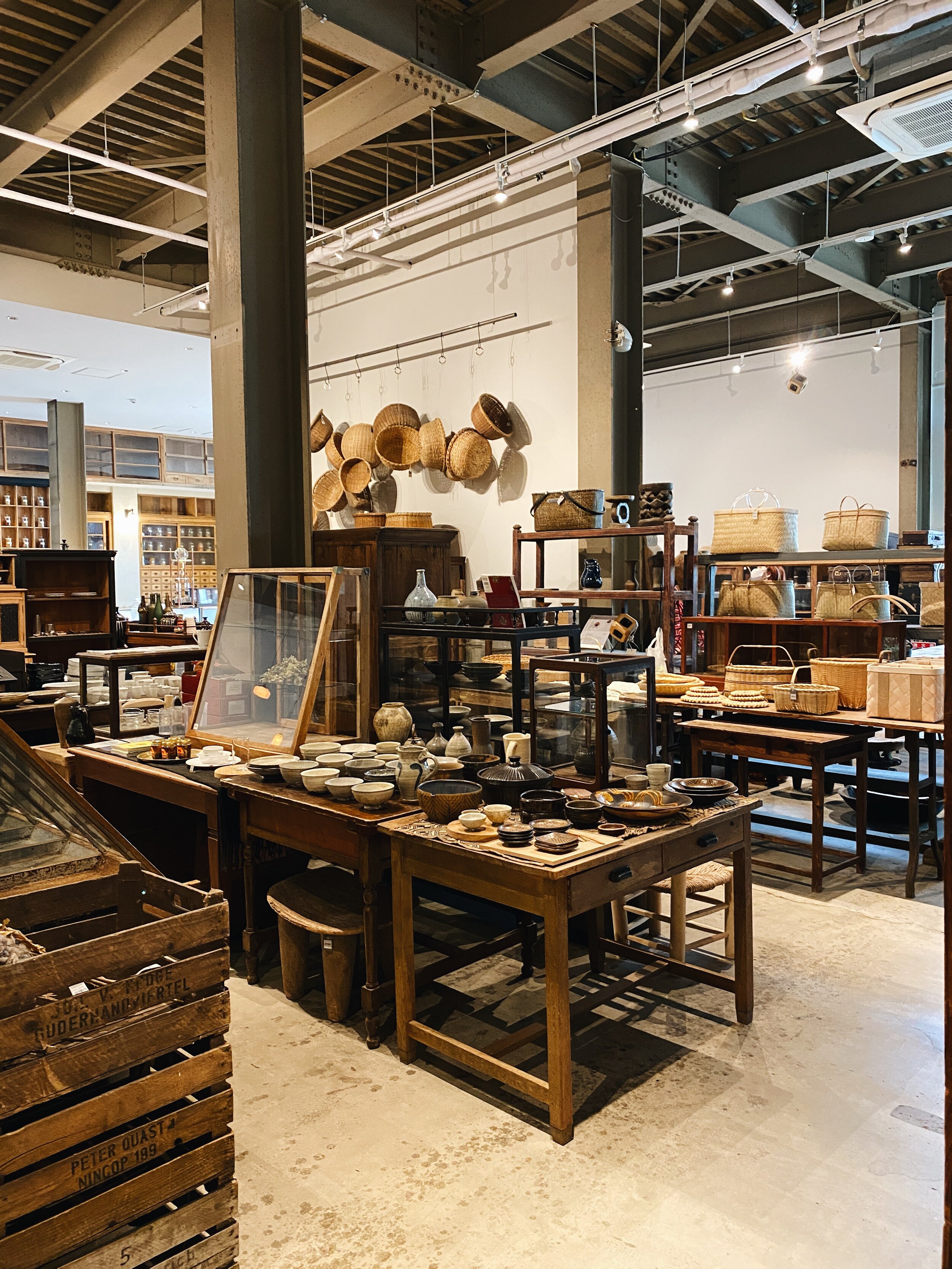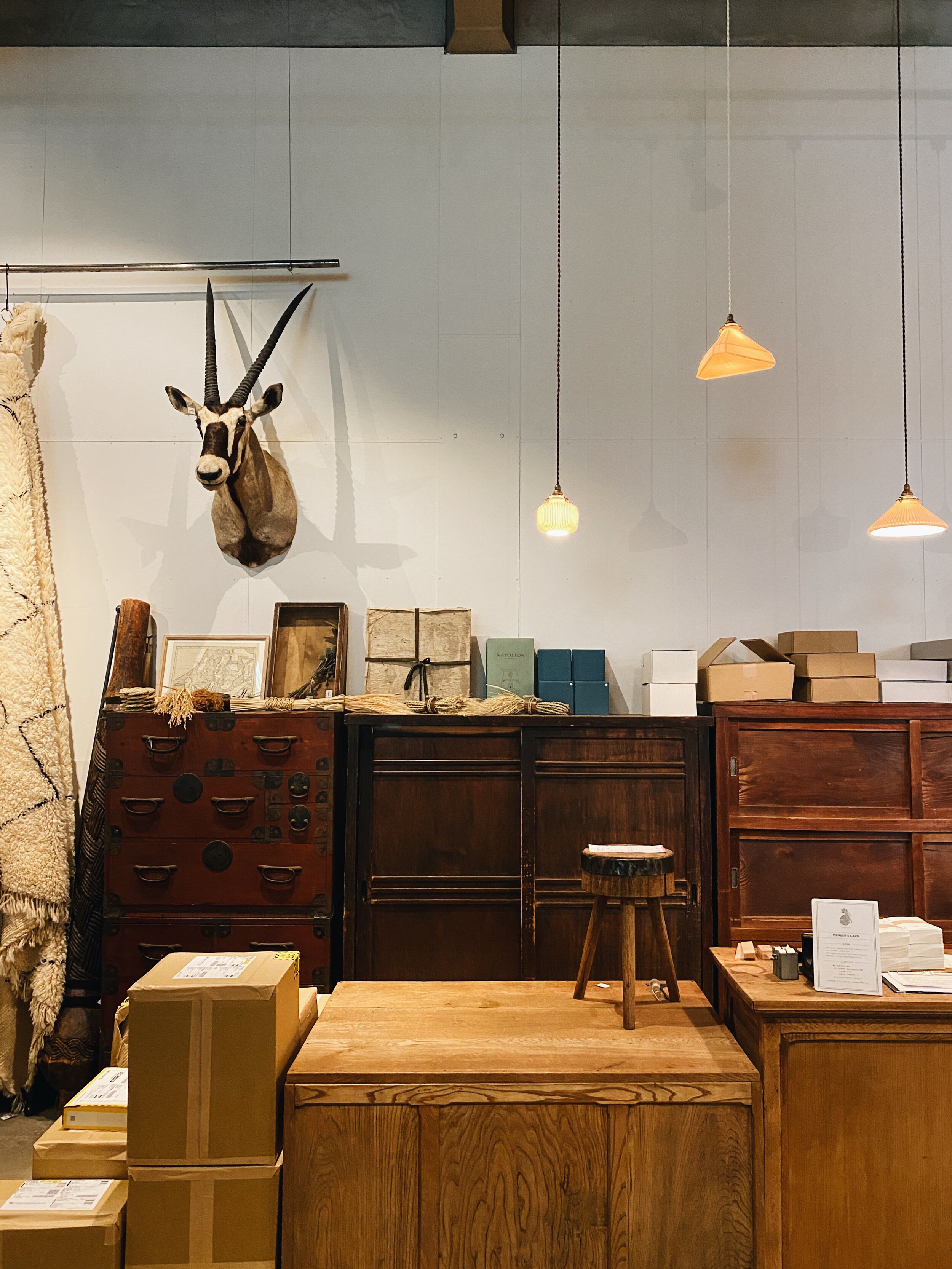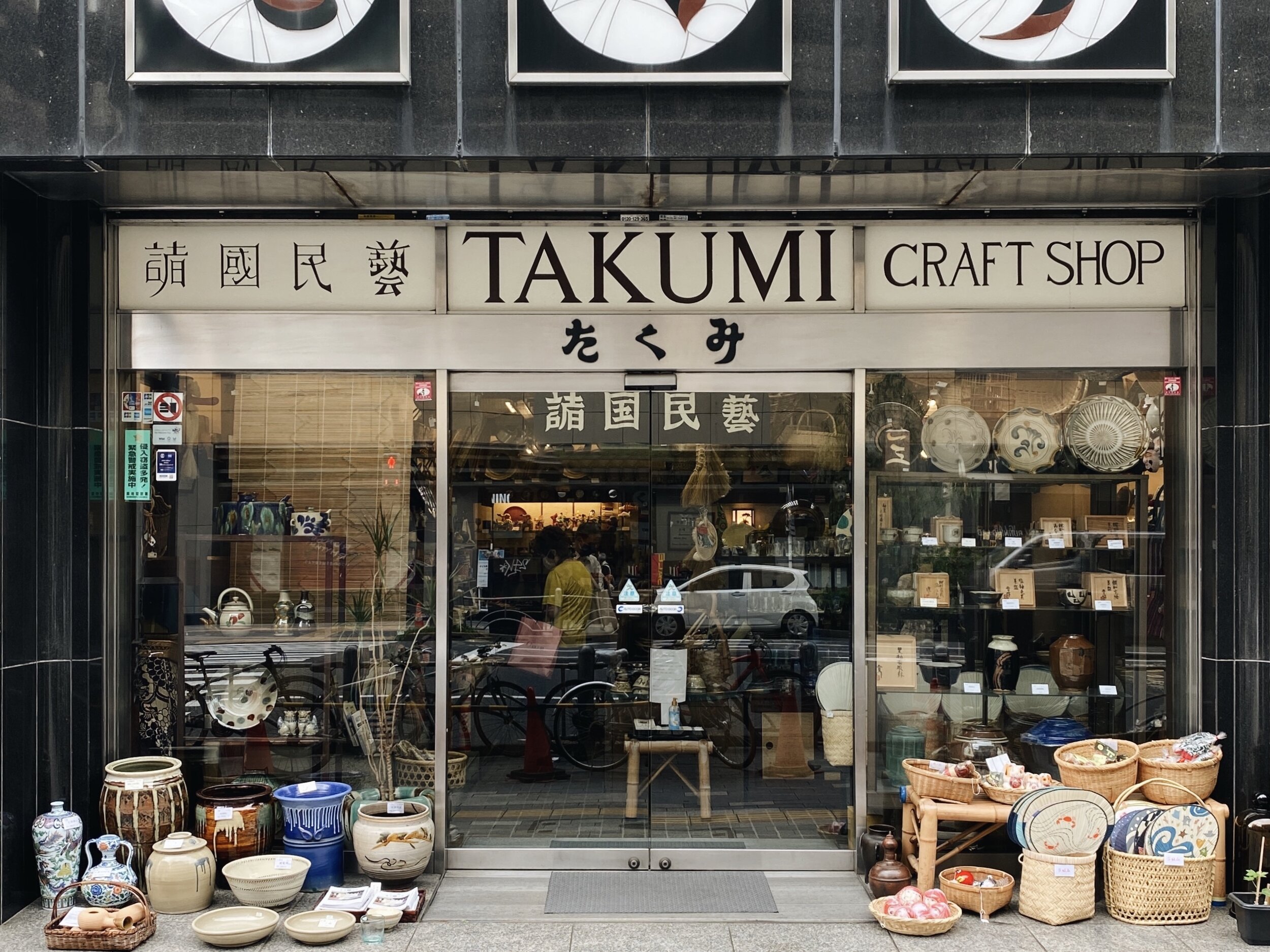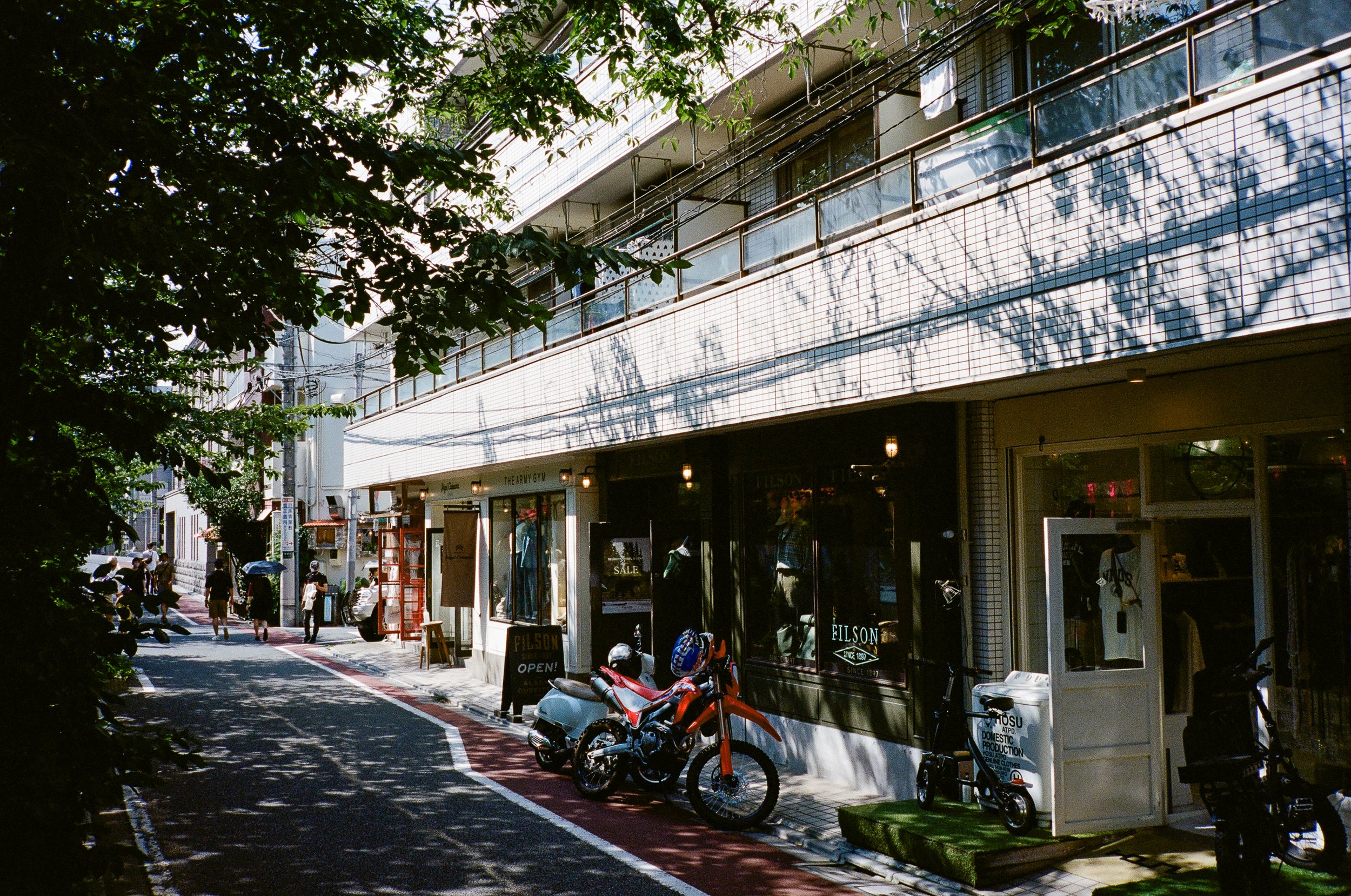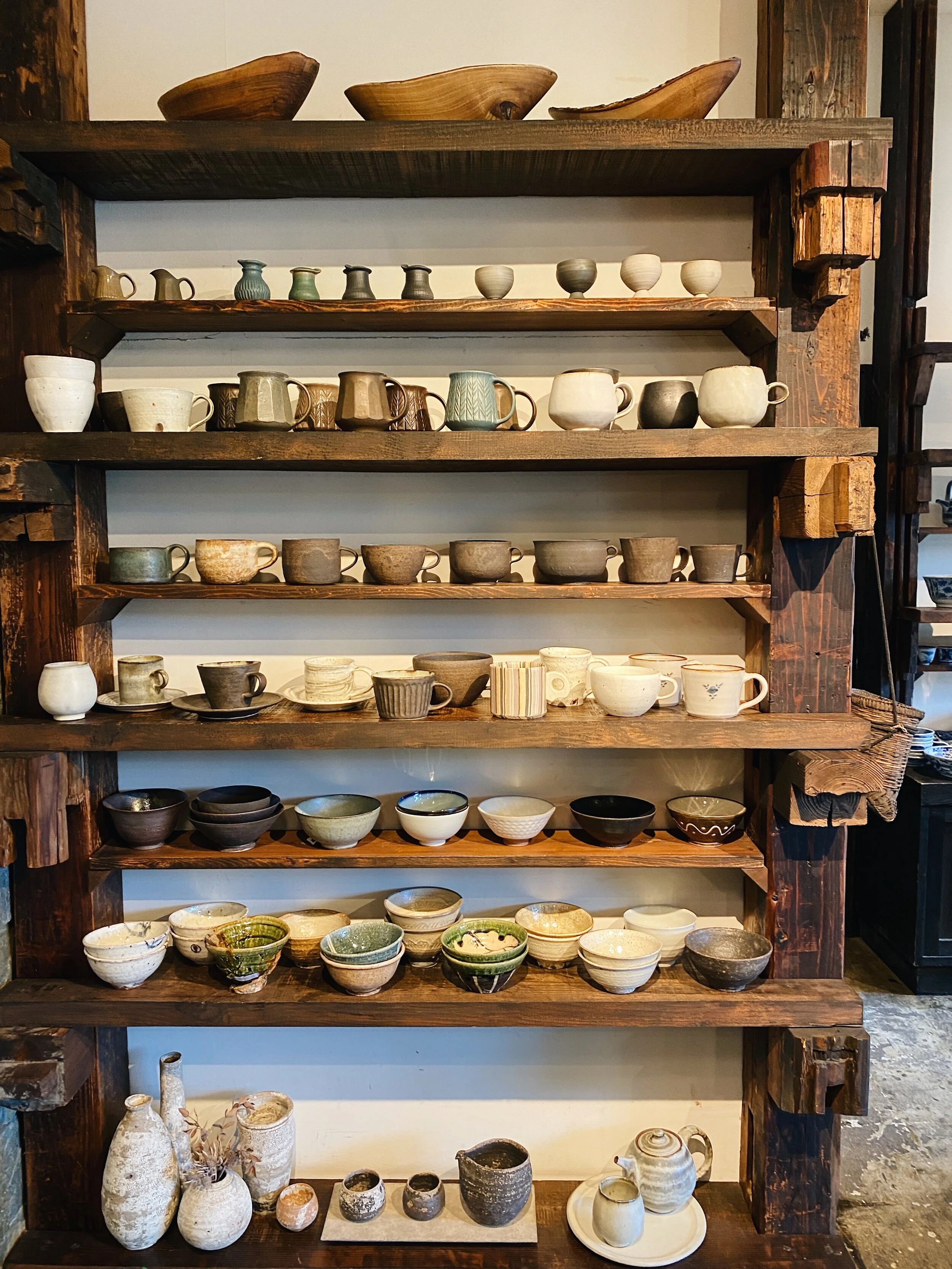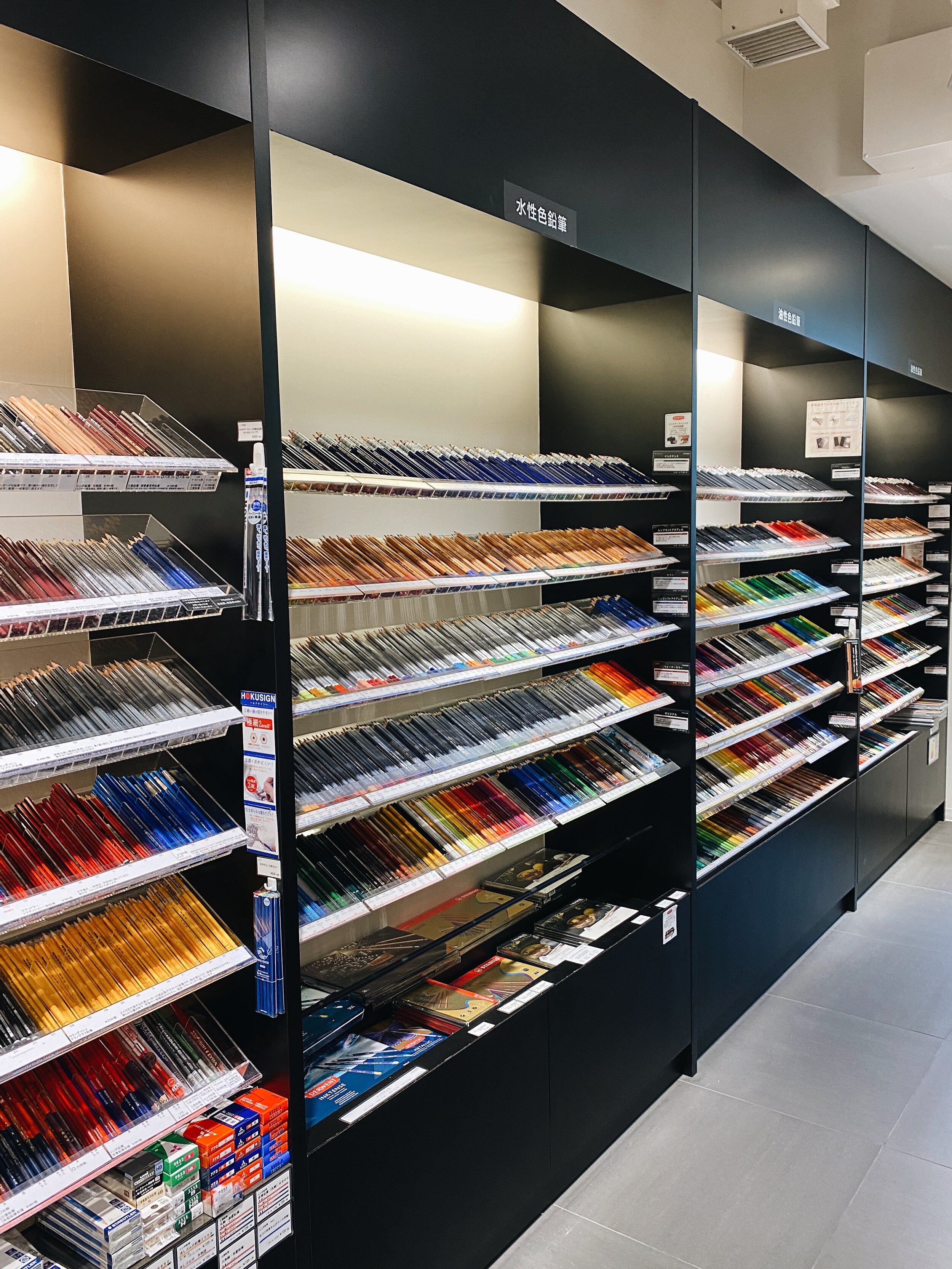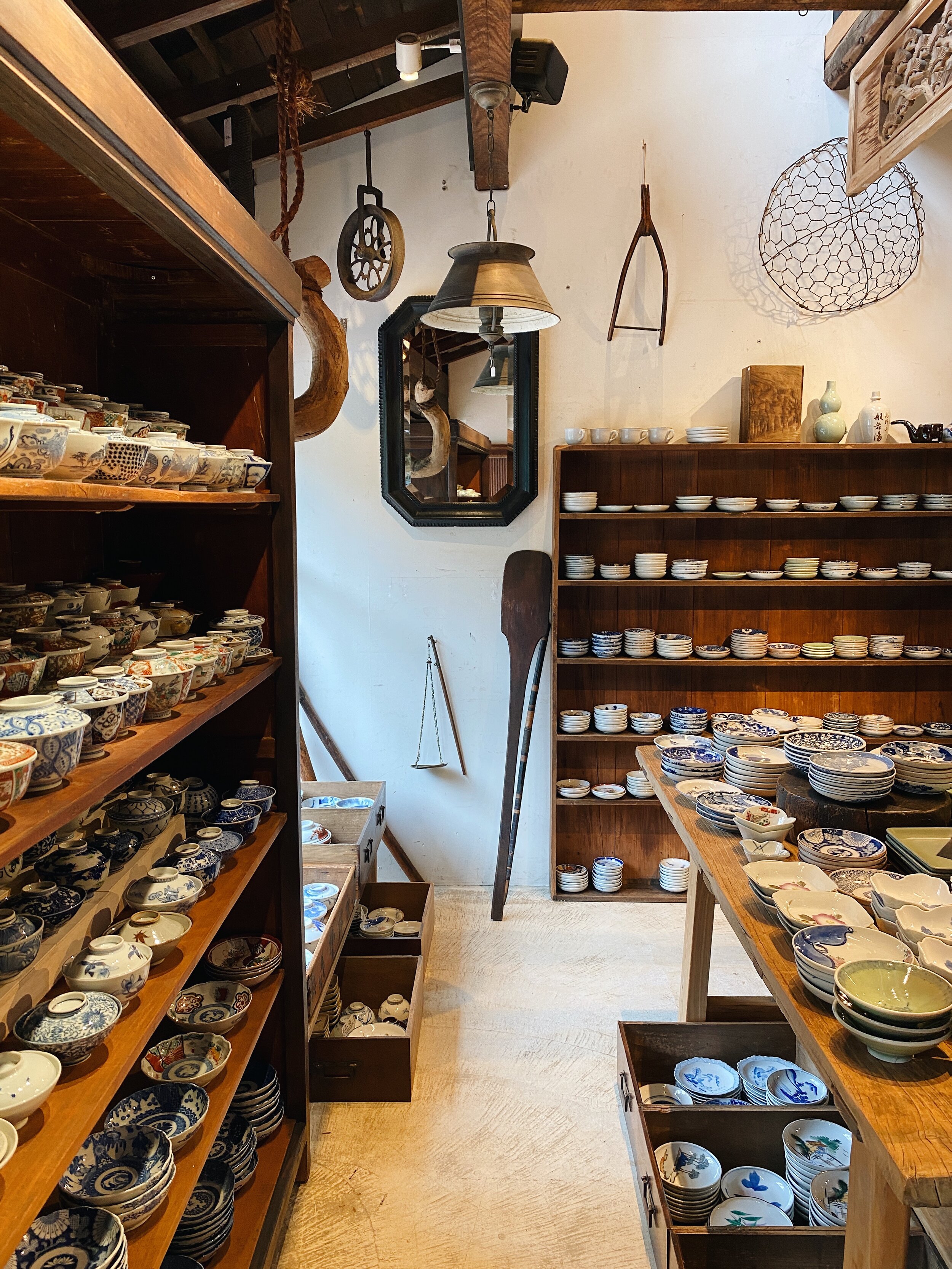The best Japanese craft and ceramic shops in Tokyo.
If you’re searching for beautiful one of a kind ceramic tableware and general craft shops, you have traveled to the right place. Japan has a long history of the arts and ceramic making, and well known for their thoughtful and timeless designs. A beautifully hand crafted piece can somehow make all things just taste better. Along with that, Tokyo has some of the best stationary shops in the world - so it can be overwhelming to know exactly where to look first. Below is a list of some of the best Tokyo has to offer.

CASICA in Koto Ward
CASICA is more than a super amazing warehouse full of one of a kind antiques. It’s also an indoor plant shop, a gallery, a woodshop, a photo and recording studio, and a cafe serving the most nourishing meals. This is one of those shops where you need to do a few laps before you feel like you have seen it all. Another plus - it’s an easy 30 minute no transfer journey from Shibuya station.
Takumi in Ginza
This long-established craft shop has been in business since 1933. The two story shop offers a refined selection of traditional crafts such as handmade paper, bamboo products, baskets, textiles, and ceramics from famous kiln villages around Japan such as: Onta in Oita-ken, Mashiko in Tochigi-ken, and Tanba in Hyogo-ken. Bonus points goes to the owner, who is so kind and oftentimes will point to exactly where your new ceramic piece was made in Japan. It’s hard to leave this place empty handed. Be sure to dig through the big wooden drawers where all the beautiful handmade paper is. Honestly, if you have one day in Tokyo - this is the shop to visit.
Bingoya in Wakamatsucho Shinjuku
Bingoya specializes in Mingei, or folk art. This Japanese art movement was developed in the late 1920s by Yanagi Sōetsu (1889–1961), and refers to “arts of the people.” The Mingei art movement and Bingoya focus on exactly that: everyday objects produced by everyday people. It has five floors worth of ceramic tableware, unique noren curtains, zabuton cushions, wooden toys, and handmade paper. If you are interested in folk art, there is an entire museum dedicated to the movement at Japan Folk Crafts Museum just outside of Shibuya. Yanagi Soetsu is also the author of The Beauty of Everyday Things, which is also a lovely and thoughtful read.
For more curated places, shop the Japan travel guides
Kyoto
Tokyo
Kanazawa
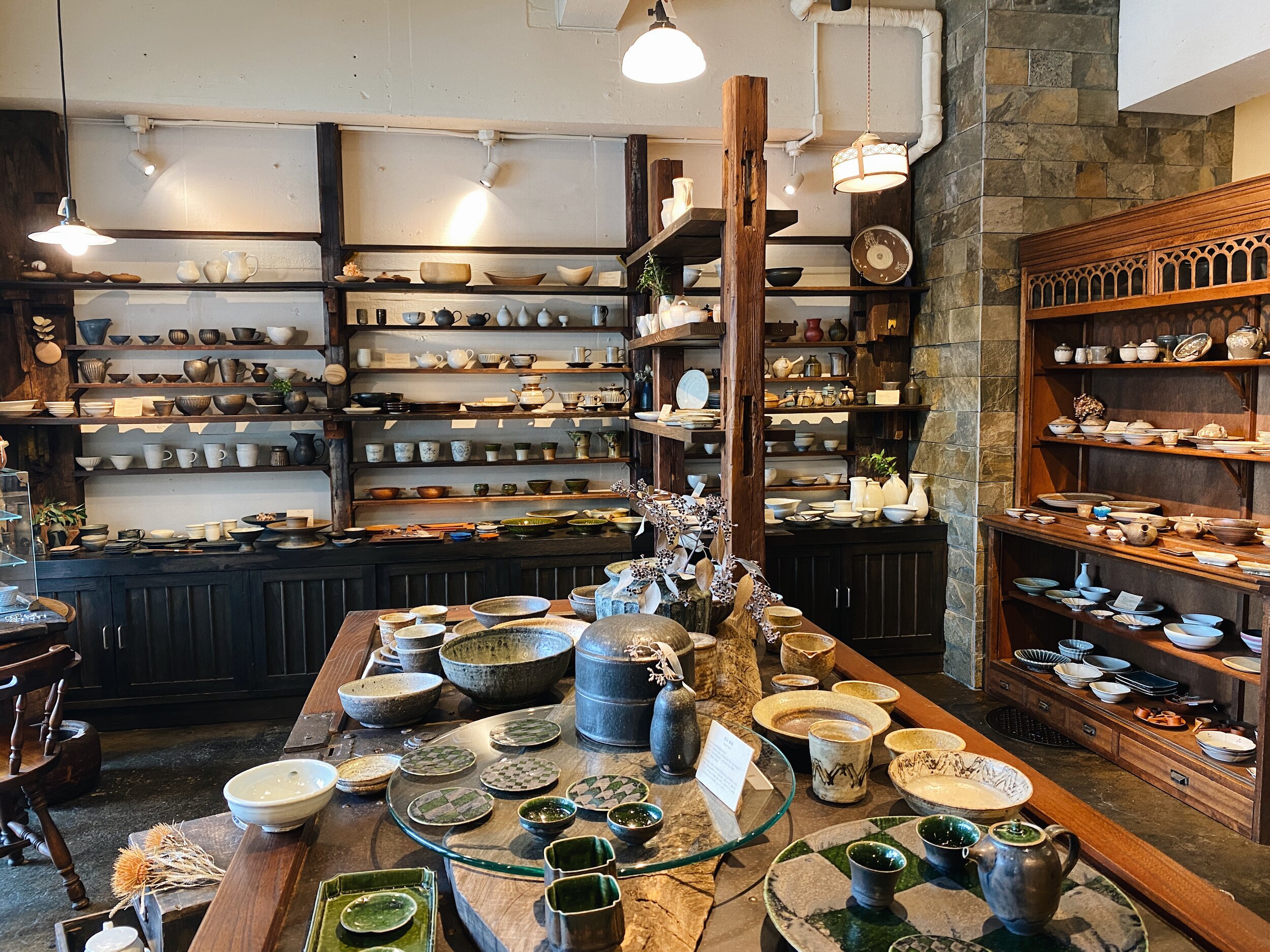
Utsuwa Marukaku 器まるかくin Shibuya
Utsuwa means ‘vessel’ in Japanese and refers to any kind of dish, vase, cup or plate. The best part about Marukaku (besides everything) is their thoughtful variety of different utsuwa materials such as clay pottery, porcelain, half porcelain - which I didn’t even know was a thing, copper, wood, and brass. The staff is so knowledgeable about the story of each piece, from the artist to how to properly care for the piece. This shop is definitely worth checking out when you’re in Shibuya.
SML in Nakameguro
This tableware shop is full of locally handmade plates, bowls, cups and decor in a variety of different materials. They also have a classroom attached for events and ceramic workshops too.
Kakimori in Kuramae
Japan has mastered the art of writing, and Kakimori is one of the many examples of that. This specialty stationery shop has the most impressive selection of pens, inks, letter sets and made-to-order custom notebooks. The bilingual staff is super helpful and can walk you through the customization process. From the size of the journal, paper type, fasteners, journal cover, and monogram option. Pretty much everything can be customized here.
The surrounding neighborhood of Kurame in Taito-Ku is very creative and full of more leather shops and ceramic shops. Check out the East Tokyo guide for ideas on things to do as you wait for your new journal.
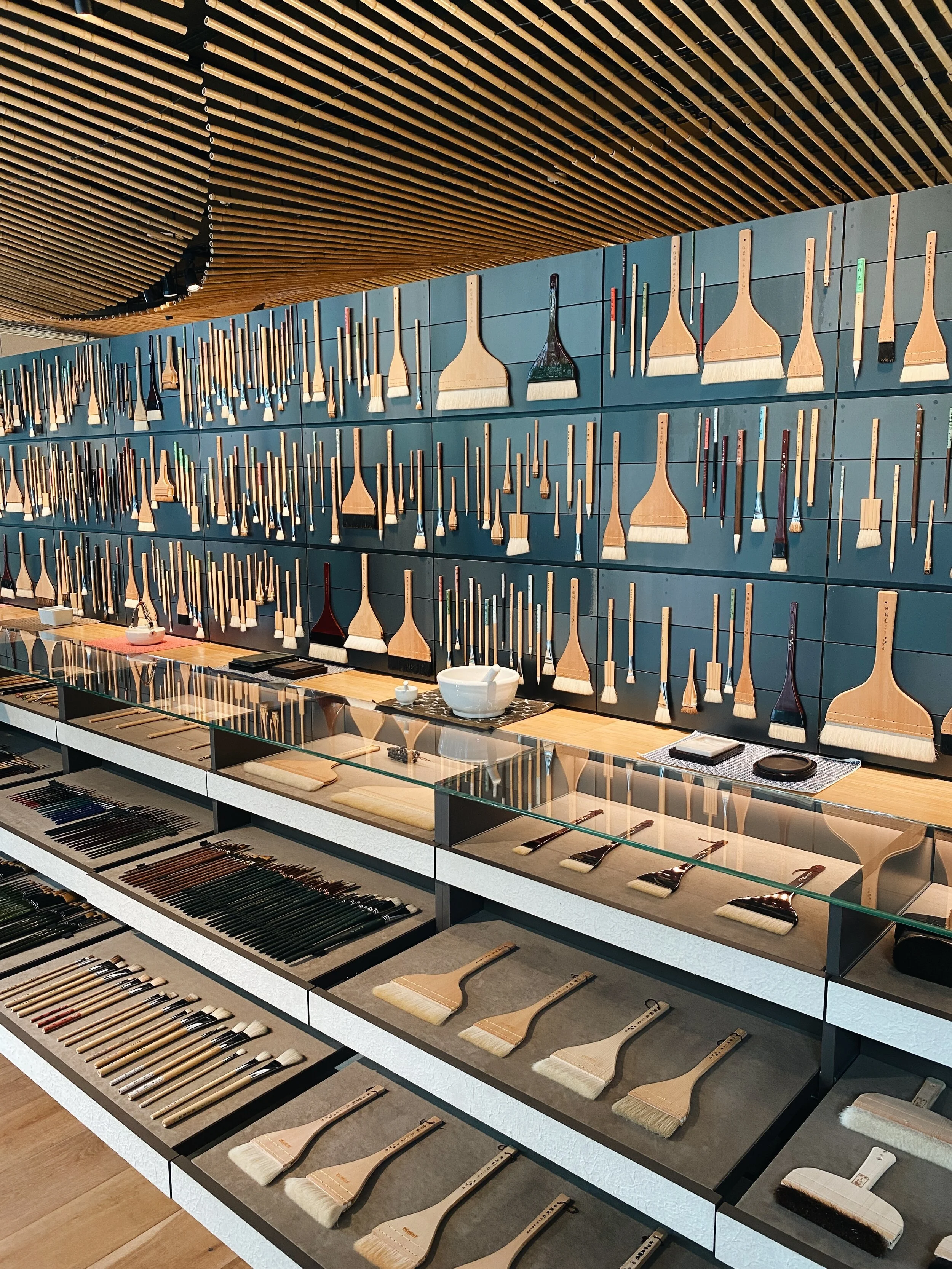
Do you paint or appreciate color? Pigment is such a unique paint shop offering a variety of brushes and colored pigments in 4,500 hues plus 200 different kinds of sumi ink sticks. They also offer demos on how to mix the pigments with water and special type of glue to get the perfect consistency. The technique is so mesmerizing, and if you’re not a painter, you may consider it after your first visit.
Pigment in Shinagawa-ku

G.Itoya is eight floors of high quality paper, travel goods, origami paper sets, desk supplies and fancy pens. I mean, really fancy like ¥20,000+ pens in locked cases type fancy. Behind the main building and tucked away in an alley is K.Itoya, which has more affordable pen & notebook options, plus paint supplies and custom framing. You can easily spend at least an hour wandering both shops and can definitely take home some very special pieces.
Marukaku 道具屋○□ まるかくin Meguro
Unrelated to the Marukaku in Shibuya, Marukaku in Meguro is located alongside some other cool kid interior design and lighting shops. This shop has two ground level rooms and one gallery-like room upstairs. Everything is so beautifully merchandised you almost need to do a couple laps. Many, if not all, of the pieces here are one of a kind so it’s fun to really dig here to find that unique piece to bring home. This shop may feel a bit out of the way, but it’s so worth checking out.

Don’t forget about the Antique Markets.
Oedo Antique Market - the largest outdoor antique market in Japan. Usually every first and third Sunday of every month.
Heiwajima Antique Fair - the oldest and most famous antique fair in Japan. A 3 day event held 5 times a year in March, May, June, September and December.
Boroichi Street Market - an enormous 700 vendor flea market held four days out of the year. A weekend in December, and January.
Mottainai Flea Market - a giant garage sale type flea market that is all about recycling and reducing waste. Free markets and events are held every weekend in various neighborhoods throughout Tokyo.
Hanazano Shrine Antique Market in Shinjuku - much smaller with only 30 vendors, but held every sunday from sunrise until sunset.
Arai-Yakushi Temple Antiques - located in Nakano-ku is a scenic and medium size flea market northwest of Shinjuku, held on the first Sunday of every month and hosts about 80 flea market stalls.
to name a few !
